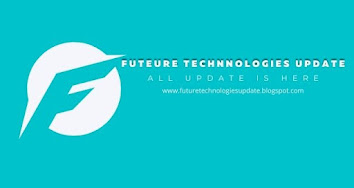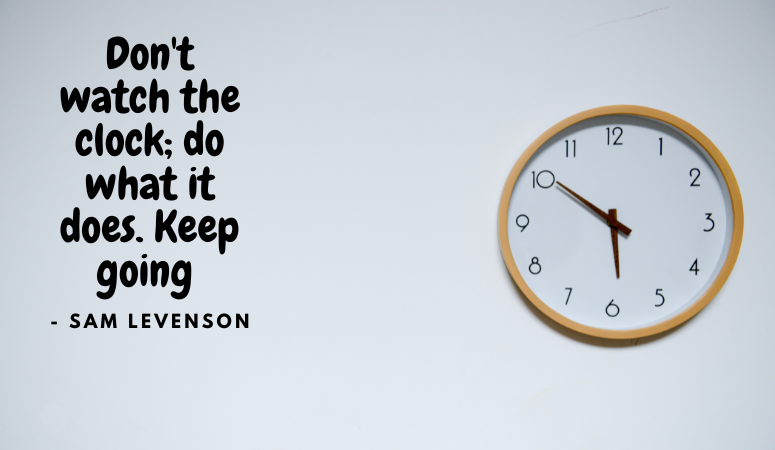Future
Technology Trend: Full Interpretation
 |
| Future Technology |
As of late, the world technology is going through significant changes
concealed in a century, the worldwide circumstance has gone through significant
changes, and world multi-polarization and monetary globalization have kept on
creating despite exciting bends in the road.
With the promising and less promising times of the new crown plague,
individuals are looking forward like never before to depending on science and
innovation to conquer the scourge and depend on mechanical development to
advance financial recuperation. With 5G entering the business time and the fast
advancement of computerized reasoning, individuals' ways of life and creation
techniques have become indistinguishable from science and innovation, however,
the future universe of science and innovation is confronting what is happening
where various advances, different patterns, and numerous tensions show up
together. So how precisely will innovation influence our reality in the
following five years?
This issue of Overseas Observation, gathered from an article by Scott
Belsky, will share the main ten innovation forecasts for the following five
years, as well as the significant effect these advances will have on the world.
We will start opt-in advertising (personalized experience)
AI personalization has made "privacy protection" and "turn
off ads" (especially for the next generation inclined towards transparency
over privacy) so incredible that turning off personalized ads is equivalent to
using an old flip phone or going to the restaurant orders a random dish.
People want to be known, but the benefits of doing so have to outweigh the
costs because anyone who receives an anxiety-inducing ad for teeth whitening or
weight loss will opt out. Frankly, the word "advertising" conjures
images of annoying banner ads and pop-up ads. But "personalized
experience" is the new form of advertising, and whether we admit it or
not, most people prefer it.
If you agree with me, it may take us back to the past when technology was at
its most advanced: for example, we want local restaurants to remember our names
and preferences, and give us an experience that suits our tastes, or we want
online food marketplaces To hide the food we are allergic to; or to hope the
shoe store remembers our size, etc.
We need AI-driven vivid encounters to comprehend us better, yet not at the
expense of safety and comfort. Design is a solution, to some extent as I would
like to think. How do we build customer relationships through user experience,
policies, and practices that allow us to hyper-personalize future experiences
at scale without compromising trust? In this new world, what sort of new
purchaser confronting organizations will arise when we believe everybody or a
little gathering should know something about us?
 | |
|
"Giving power to people" is a service
I'm fascinated by the rise of consumer products and networks with business
models designed to remove deliberately imposed frictions and conflicts of
interest, and I think we'll see more of this in the future.
Stock-trading app Public has become a Robin Hood competitor for its stance
against "payments for order flow," a business model that could harm
consumers. The application DoNotPay has developed into a membership business at
scale, assisting customers with battling administration and addressing buyer
complaints through government processes. MOS has changed the field of
instruction funding by assisting understudies with applying for awards and
grants rapidly and effectively, lessening hindrances.
Each function of the enterprise will become an immersive experience
with multiple people participating
What excites me especially is that some businesses are reimagining employee
functions—with collaboration, transparency, and more accessible interfaces at
their core. The lumbering system expected for cross-departmental coordinated
effort because of the disconnection of divisions will never again exist.
Make representatives partners or they will not completely comprehend how the
entire thing functions. In recent months, I've seen a game-like Dev Ops
environment, a virtual chiller driving "spontaneity-as-a-service",
and a financial planning tool with a tool that any department manager can use.
Supersedes this function. Each tool permits anybody in the organization to take
an interest, with fluctuating degrees of authorization. Make employees
stakeholders or they won't fully understand how the whole thing works.
Less discussed are the costs and trade-offs of multiplayer systems—whether
apps get worse with more collaboration, or consensus-driven protocols on
blockchains get worse with more consensus. There is a generational shift in
values ​​and trade-offs: people would rather work together with greater
delays than work individually faster.
The first phase of these products will bring a multiplayer 2D experience.
But I think it will soon be possible to see them iterate into 3D. Imagine being
able to "browse" through your income statement and balance sheet to
see the growth rates visualized, you can also "jump" into the context
of working with any particular client and experience it in an immersive way
business operation. You can walk to a neutral zone in an immersive financial
experience, where you'll meet professionals from other companies and can ask
those questions or share comparisons.
These immersive experiences will help more people learn about product
functionality, just as skeuomorphic design helped early iPhone users grasp the
functionality of an app. It is smarter to show a man how to fish than to give
him a fish. The next generation of enterprise technology will be driven by
design, and the undertaking will presently not be an island.
 |
| Future Technology |
The next generation will have a decade of traveling life and work
When I graduated from college, my first task was to find an apartment with a
roommate. Remote work wasn't famous at that point, Airbnb didn't exist, and
every condo was rented for at minimum a year, so it was just reasonable to
assume you had a long-term stable job.
Fast forward to now, the vast majority of startups, and even many large
corporations, have transitioned to telecommuting or even telecommuting-only
models, plus there are now various types of apartment exchange systems, and
Airbnb rooms in various price ranges, which allows us to choose where we live
for weeks at a time.
Therefore, my prediction is that in the future, more and younger people in
their twenties will be more inclined to immerse themselves in community
cultures around the world and work remotely in rented or exchanged spaces. Such
experiences will transform their lives, fostering their creativity, openness to
diversity, and spirit of self-exploration, thereby enriching their resumes and
professional outcomes.
In the future, what items and organizations will make this life more open
and reasonable? As long as products or employers are leaning in this direction,
success will be achieved.
Granted, the new lifestyle opens up a Pandora's Box of remote work. New
companies established in this time can unquestionably adjust to this pattern,
yet can be laid out organizations do a progression of practices and changes in
view of new ways of life and societies?
In the end, the gap between companies that are willing to accommodate and
those that are unwilling to accommodate will gradually widen, either following
in the footsteps of outstanding talents and changing, or they can only fall
behind.
The Reverse Franchise Model and the Rise of "Education"
As anyone who has read my predictions last year knows, I have long been
interested in models for individuals and small businesses to gain the edge over
the big business because doing so is the only way to level the playing field
and perhaps provide consumers with small Combined benefits of the enterprise
(relationships, services, local sponsorships) and large enterprises (better
user experience, scaled pricing, modern technology, and interface, etc.).
Mexico-based Colors engages all local families with buses in rural and urban
areas of Mexico and only provides them with branded materials such as the
Colors reservation system and new paint finishes. This is the very thing I call
the "Converse Franchise" model, where existing private companies
unite to profit from aggregates while holding a level of independence.
I believe "Eduployment" will be a breakthrough in people's careers
in the next few years. "Employment" refers to a vertically integrated
model that helps people identify industries, get an education, find a job or
start a company. My favorite example remains Nana, which provides electrical
repair training for job seekers and helps people book repairs from appliance
manufacturers. Essentially cultivating individuals into a "franchise
company", I predict this concept will develop over the next few years.
The age of multiple identities: discovering, embracing, and
expressing multiple selves
The social network of the last era was tolerant and tolerated the use of
pseudonyms by users, but the social network of the next era will be optimized
because each participant will have multiple identities. It just so happens,
individuals ought to never be restricted to a solitary character characterized
by everyone around us, and keeping in mind that we generally envision and seek
to be who we want to be indifferent to contexts rather than obeying how others
define us, this ideal resistance is too great. Due to geographic and ecological
imperatives (where you were conceived, what you resemble, your social climate,
and so forth), and these variables are so definitive, it takes a ton of mental
fortitude and persistence for individuals to get through the imperatives.
Multiple identities are becoming less and less marginalized through a
confluence of factors such as modern social network structures and norms,
decentralized art projects and networks, and the very popular carrier of
Internet culture.
My friend Sriram Krishnan recently shared a story where he met a man behind
a pseudonym he had known for a long time and whom he respected, but then he
suddenly found out that this man was with him Krishnan was shocked by the fact
that it was completely different from what he had imagined, and that the man
was completely unknown.
This caused me to understand that maybe evident world-class thought must be
found and esteemed when it isn't restricted by a solitary personality and
without bias. In networks like Discord, users can choose any name and avatar to
represent themselves, while in it's me, people can communicate in real-time
through creative avatars of their choice.
We can see a huge increase in the willingness of people to interact, trade,
and make friends with pseudonymous users, and these changes will only make the
world more interesting, unexpected, and real.
Conclusion












No comments:
Post a Comment